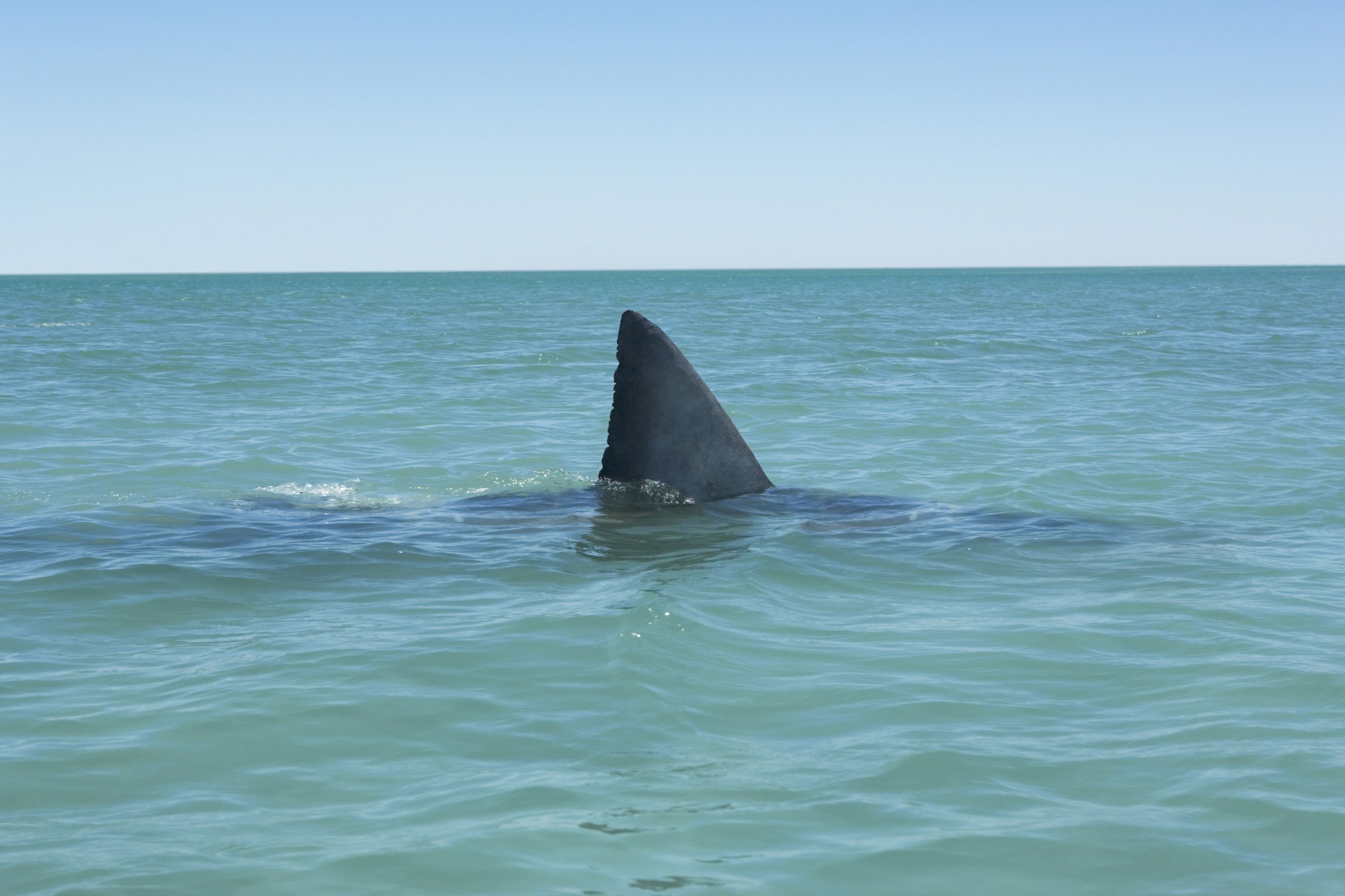
This week, millions of Americans will tune into Shark Week, the Discovery Channel’s popular annual tribute – now in its 28th year – to the ocean’s most infamous predators.
But how does watching Shark Week actually affect people’s beliefs and feelings about sharks?
That’s what we set out to discover in our recent study, which looked at the effects of watching video of sharks alongside public service announcements (PSAs) about the need for shark conservation.
Which species should be afraid?
Shark Week is famous for portraying sharks as deadly predators that threaten our status as the world’s top species. But in fact, sharks should fear us a lot more.
Up to 100 million sharks are killed every year, whether it’s for the popular Chinese dish shark fin soup or as accidental bycatch. Meanwhile, fewer than five people are killed by sharks every year. Based on these statistics, you’re far more likely to die from a bee sting or the flu than you are to be killed by a shark.
This fact puts scientists and marine conservationists in a bind when it comes to Shark Week.
On the one hand, the series draws a vast audience of people who are interested in sharks. On the other hand, Shark Week then plies that audience with violent imagery of sharks that paints them as, well, less than sympathetic (to put it mildly), and not exactly worthy of protection.
Healthy shark populations are important for the oceans because they keep the systems of interdependent food chains in balance, which protects both the seafood species that we like to eat and the marine mammals that we find a bit more cuddly.
We wanted to find out if PSAs from marine conservation organizations stating the facts about sharks would mitigate people’s emotional reactions to the violent imagery often shown on Shark Week.
So we paired clips from Shark Week that contained varying levels of violence with conservation-focused PSAs. We used highly violent Shark Week clips showing a shark tearing into a person, causing serious injury; moderately violent ones in which a shark bites a person who sustained no injuries; and nonviolent clips that showed sharks simply swimming.
We used actual shark conservation PSAs in our study, which participants watched after they saw a clip from Shark Week – one from Pew and one from Oceana. (Oceana’s “Scared for Sharks” PSA featuring actress January Jones actually did run during Shark Week in past years.) Both PSAs informed viewers that their actual risk of being attacked was quite low but that sharks are killed in high numbers by humans.
‘Mean ocean syndrome’ for some; new ocean advocacy for others
More than 500 people watched the clips and reported their reactions, and it turns out that violent Shark Week content, whether paired with a PSA or not, caused a fearful reaction in people.
No matter what, sharks are scary – especially in high definition.
Watching a PSA didn’t mitigate people’s fearful reactions, and people continued to overestimate their own risk of being attacked by a shark, even when presented with the facts.
We call this “mean ocean syndrome,” a variant of mean world syndrome: the idea that people who watch a lot of violent crime drama on television tend to overstate their likelihood of being a victim of a crime.
Likewise, television programming that depicts the ocean as a violent place will cause people to overestimate the danger to themselves when they go in the water.
But here’s what the PSAs did do.
For many viewers, especially younger women, the PSAs prompted an increased interest in shark conservation and an intent to do things like donate to a conservation organization or support legislation that protects sharks.
That’s major. It means that Shark Week has the opportunity to turn at least some of its viewers into ocean advocates. Given that some shark species are already headed toward extinction, Shark Week could end up being an unlikely savior for sharks – that is, if the Discovery Channel wants to use its vast reach to protect the creatures that have earned the network millions of dollars.
Suzannah Evans is PhD candidate in Journalism & Mass Communication at University of North Carolina – Chapel Hill.
Jessica Gall Myrick is Assistant Professor of Media at Indiana University, Bloomington.
This article was originally published on The Conversation. Read the original article.
More Must-Reads from TIME
- Donald Trump Is TIME's 2024 Person of the Year
- Why We Chose Trump as Person of the Year
- Is Intermittent Fasting Good or Bad for You?
- The 100 Must-Read Books of 2024
- The 20 Best Christmas TV Episodes
- Column: If Optimism Feels Ridiculous Now, Try Hope
- The Future of Climate Action Is Trade Policy
- Merle Bombardieri Is Helping People Make the Baby Decision
Contact us at letters@time.com